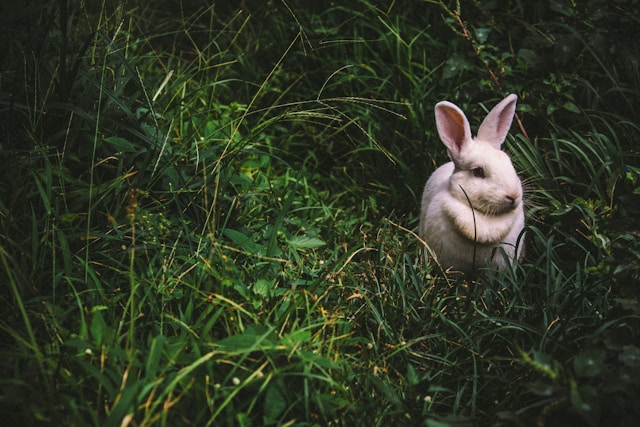Rabbits make wonderful pets, but they require specific care to stay happy and healthy. Unlike cats or dogs, they have unique needs, from diet to housing and socialization. This guide will walk you through everything you need to know about how to take care of a pet rabbit, ensuring a fulfilling life for your furry friend.
Choosing the Right Rabbit
Before adopting a rabbit, it’s important to choose the right breed that fits your lifestyle. Some rabbit breeds are more energetic, while others are better suited for families with children. Consider factors such as size, lifespan, and temperament when selecting your pet. Researching rabbit breeds and their personalities will help you make an informed decision.
Housing and Environment
Indoor vs. Outdoor Living
Deciding where your rabbit will live is crucial. While rabbits can live outdoors, they thrive best in a safe indoor environment where they are protected from predators and harsh weather.
Cage and Habitat Setup
A rabbit’s habitat should be spacious enough for them to move around freely. The cage should be at least four times the size of your rabbit when fully stretched out. Use soft bedding or mats to protect their feet and ensure proper ventilation in their living space.
Rabbit-Proofing Your Home
If you allow your rabbit to roam freely, make sure to rabbit-proof your home. This includes covering electrical cords, securing furniture edges, and blocking off areas that could be dangerous. A well-prepared environment ensures your rabbit’s safety.
Nutrition and Diet
Rabbits have a sensitive digestive system, making their diet crucial for their well-being. The best food for pet rabbits includes:
- Hay: A staple that should make up 80% of their diet, promoting healthy digestion.
- Pellets: High-quality rabbit pellets provide essential nutrients.
- Fresh Vegetables: Leafy greens like kale and romaine lettuce add variety and nutrition.
- Fresh Water: Clean, fresh water should always be available.
Foods to Avoid
Avoid feeding rabbits processed foods, sugary treats, or toxic vegetables like onions and potatoes. A proper diet will keep your rabbit in top health.
Grooming and Hygiene
Brushing and Shedding Control
Rabbits groom themselves frequently, but they still need help with shedding. Regular brushing helps prevent hairballs and keeps their coat healthy.
Nail Trimming and Dental Care
Overgrown nails can cause discomfort and injury, so trimming them every few weeks is necessary. Additionally, rabbits’ teeth continuously grow, making chew toys essential for dental health.
Litter Training and Cleanliness
Rabbits are naturally clean animals and can be litter trained. Use a large litter box with rabbit-safe litter and clean it regularly to maintain hygiene in their living space.
Health and Common Illnesses
Signs of a Healthy Rabbit
A healthy rabbit is active, eats regularly, and has bright, clear eyes. Monitoring their behavior will help you detect any health issues early.
Common Health Issues
Some common rabbit health problems include:
- GI Stasis: A potentially fatal condition where digestion slows down.
- Dental Problems: Overgrown teeth can lead to eating difficulties.
- Parasites: Fleas and mites can affect rabbits, requiring treatment.
If you notice signs of illness, consult a vet specializing in rabbit care immediately.
Exercise and Enrichment
Importance of Daily Exercise
Rabbits need daily exercise to stay fit and prevent obesity. Providing them with a spacious play area allows them to hop, run, and explore safely.
Safe Toys and Activities
Toys help keep rabbits mentally stimulated. Provide them with chew toys, tunnels, and interactive play items to prevent boredom.
Socialization Tips
Rabbits are social animals and enjoy companionship. If possible, consider bonding them with another rabbit or spending time interacting with them daily.
Handling and Bonding
Properly Holding a Rabbit
Rabbits have delicate spines, so handling them correctly is essential. Support their hind legs and hold them gently but securely to prevent injury.
Building Trust and Strengthening Bonds
Gaining a rabbit’s trust takes patience. Spend time sitting near them, offering treats, and letting them come to you naturally.
Addressing Behavioral Issues
If your rabbit is shy or aggressive, understanding their behavior is key. Avoid forcing interactions, and use positive reinforcement to encourage good behavior.
Conclusion
Caring for a pet rabbit requires commitment, but with proper care, they can be affectionate and rewarding companions. From providing a healthy diet to ensuring a safe environment, every aspect of rabbit care plays a role in their well-being. By following these tips, you can ensure a happy and healthy life for your furry friend.









